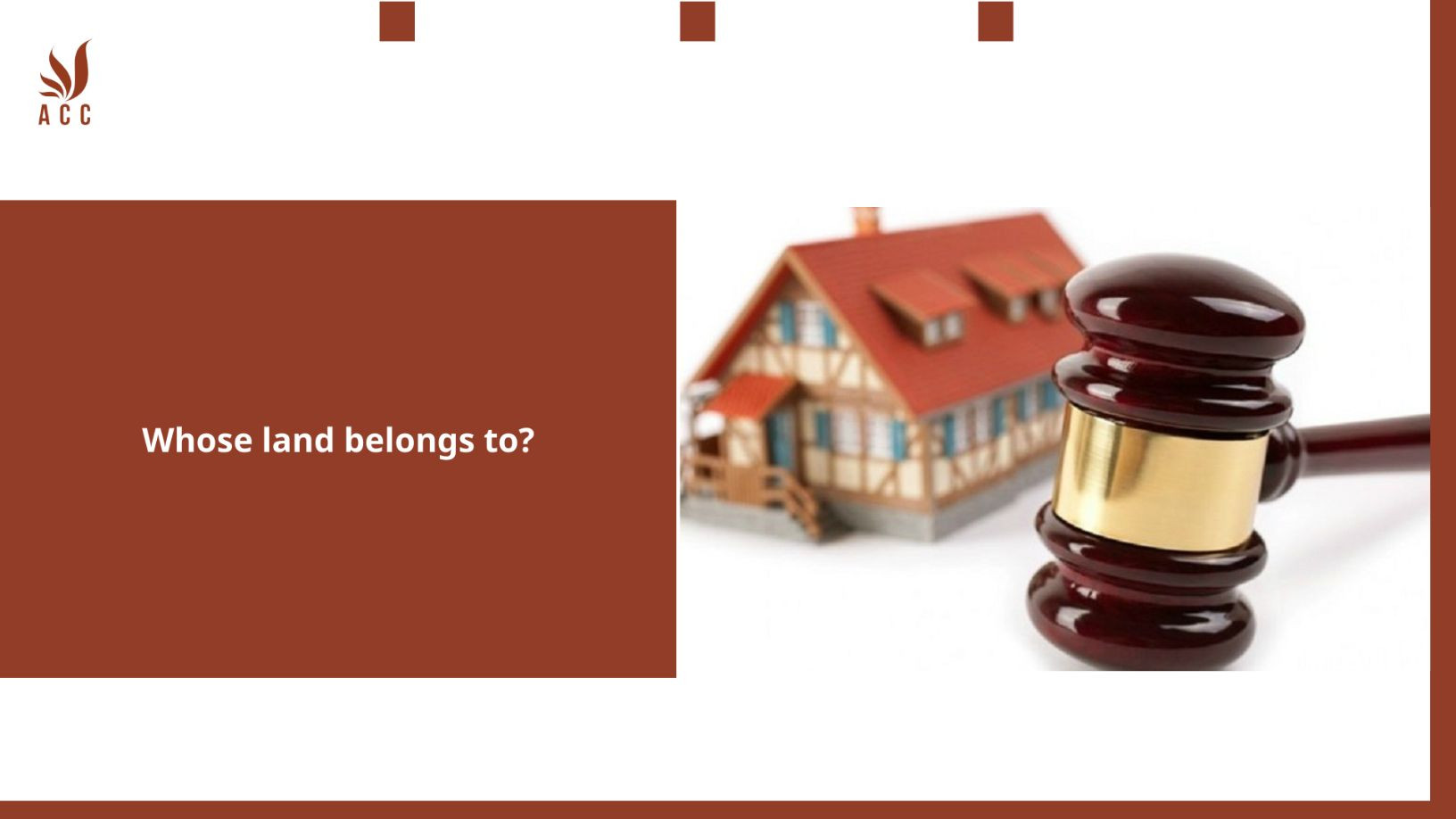The ownership of land typically belongs to individuals, entities, or governments, depending on the legal and cultural framework of a given region or country. Land ownership can take various forms, and it's essential to understand the specific context and laws in a particular area. Here are some common forms of land ownership:

1. Private Ownership:
In many countries, individuals or private entities can own land as private property. This form of ownership allows the landowner to possess, use, and dispose of the land as they see fit, within the boundaries of local laws and regulations.
2. Collective Ownership:
In some societies, land may be collectively owned by a community, village, or tribe. In such cases, land use and management decisions are made collectively by the members of the community or a designated authority.
3. Government Ownership:
Certain lands, such as public parks, government buildings, and military installations, are owned by the government. Government ownership often includes lands held for public purposes or national interests.
4. Indigenous Land Ownership:
In many regions, indigenous communities have distinct land ownership and land use rights, which may be recognized and protected by law. These rights are often tied to cultural heritage and traditional land stewardship.
5. Commons Ownership:
Some lands are held as common property, allowing multiple individuals or groups to access and use them for specific purposes. Common lands might include pastures, forests, or bodies of water.
6. Crown or State Ownership:
In some countries, the state or the crown retains ownership of all land, and individuals or entities may only hold rights to use the land, such as leaseholds.
7. Easements and Rights of Way:
In certain cases, individuals or entities may own land but grant easements or rights of way to others for specific purposes, such as access or utilities.
It's important to note that land ownership is often subject to various legal rights, restrictions, and regulations. Property and land ownership laws can vary widely from one region or country to another, and they may be influenced by historical, cultural, and legal factors. Additionally, land ownership may be subject to change due to legal proceedings, land sales, inheritances, or government actions like eminent domain.
8. When using ACC Law Firm's land-related services, entrepreneurs will receive
When using ACC Law Firm's land-related services, entrepreneurs will receive expert advice and assistance in navigating various legal aspects of land ownership and transactions. This includes guidance in property acquisitions, leases, zoning regulations, land use planning, and any other land-related legal matters. ACC Law Firm's team of experienced attorneys will provide personalized support to entrepreneurs, ensuring compliance with applicable laws and regulations, protecting property rights, and optimizing the value of their land investments.
9. Q&A
Question 1: Who does land belong to?
Answer 1: Land ownership typically belongs to individuals, entities, or governments, depending on the legal and cultural norms of the specific region or country. Private individuals, businesses, and organizations often own land, while in some cases, land may be owned by government entities for public use.
Question 2: How is land ownership established?
Answer 2: Land ownership is typically established through the legal transfer of property rights using documents like deeds, titles, or land grants. These documents specify the owner's rights to use, sell, lease, or bequeath the land. Ownership can also be established through inheritance or purchase.
Question 3: Are there restrictions on land ownership?
Answer 3: Yes, there can be restrictions on land ownership, which vary by location and jurisdiction. Common restrictions include zoning laws that regulate land use, environmental regulations, and property taxes. In some cases, governments may use eminent domain to acquire private land for public purposes with compensation to the owner.
Question 4: Can land ownership change over time?
Answer 4: Yes, land ownership can change over time due to various reasons, including sales, purchases, inheritance, and legal transactions. Changes in land ownership are typically documented through deeds, titles, or other legal instruments to ensure the transfer of property rights.
Nội dung bài viết:






Bình luận